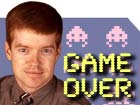|
Nintendo's changing of the guard
|
 |
January 9, 2002: 12:43 p.m. ET
Departure of two key executives comes as stiff competition looms.
|
NEW YORK (CNN/Money) - Two of Mario's favorite uncles are leaving town.
Now that Nintendo's GameCube and Game Boy Advance are entrenched in the gaming collective after the 2001 holiday season, there are some changes going on in the executive suite. Minoru Arakawa, president of Nintendo of America, announced his immediate retirement on Tuesday, ending a 22 year history with the company. And executive vice president Peter Main will depart at the end of the month, after 15 years at Nintendo.
Together, the two men are largely credited for Nintendo's success in the United States. Their departures put Nintendo at a crossroads as it faces the most competitive market the gaming industry has ever seen.
"[Arakawa and Main] clearly had a co-equal role in getting Nintendo to the place where it is," said John Taylor, managing director and analyst for Arcadia Investment Corp. "It was a combination of vision and execution. The two made an excellent team."
Main announced his plans last July and stayed on to help oversee the launch of the GameCube. Associates say he's taking some time off to figure out the next step in his career.
Arakawa's abrupt decision, however, came as a surprise to the industry. Still, Nintendo says (and analysts concur) that the two departures are not related.
"I know it appears sudden from outside the company, but this is something that has been well thought out," said Howard Lincoln, board member and former chairman of Nintendo of America. "He actually came to this decision in September, but didn't want this announcement to get in the way of the holiday sales."
Given the suddenness of Arakawa's announcement, some are questioning whether Nintendo of America will be as independent as it has been in the past.
"Japan is probably becoming a bit more influential in the day-to-day management decisions at Nintendo of America," said Taylor. "It seems that might have been going on for a little while."
That theory could be backed up by Nintendo's choice to succeed Arakawa. Tatsumi Kimishima, a two-year Nintendo veteran, will assume the company's presidency immediately. Kimishima most recently served as chief financial officer of The Pokemon Company and president of Pokemon U.S.A.
Lincoln, though, said there's no agenda at work here. Arakawa was not forced out and the timing of his departure in relation to Main's is coincidental.
Kimishima takes over Nintendo of America as the company is on something of an upswing. GameCube sales were strong throughout the just-completed holiday season, with 1.2 million units sold by Dec. 22 (that's just 100,000 shy of Microsoft's Xbox), according to Credit Suisse First Bank.
More impressive, though, were sales of the Game Boy Advance: 636,000 of the handheld gaming units were sold between Dec. 16 and Dec. 22. By way of comparison, there were only 596,000 PlayStation 2 units sold in that timeframe. The Game Boy Advance, which retails for between $90 and $100, is a major success for Nintendo, establishing a �base of more than 4.6 million gamers after just 6.5 months on the market.
"It remains to be seen what the long-term impact of Mr. Main's and Mr. Arakawa's departure will be," said Taylor. "In the near term, I don't expect Nintendo to miss a beat."
Priority one for the company will be increasing the average age of its consumer. Historically, Nintendo has catered to gamers under the age of 14 while the rest of the industry has focused on players over 20 years old. Doing so has given it an incredibly strong niche - and the strongest arsenal of characters in the business. Now it's hoping to capture a bigger piece of the industry's $8.1 billion pie.
Morris is director of content development for CNN/Money.
Click here to send e-mail to Chris Morris. 
|
|
|
|
|
|

|

